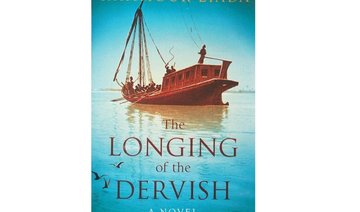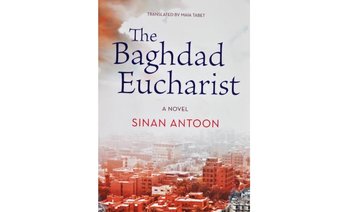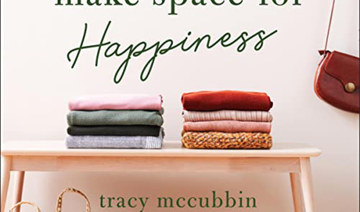Denmark is perceived to be the world’s least corrupt nation, followed by New Zealand, Singapore, Finland, Sweden and Canada, according to the recent findings of the Corruption Perception Index. The report annually ranks countries by their perceived levels of corruption, as determined by expert assessments and opinion surveys. Angola, Somalia, Afghanistan and Iraq linger toward the end of the list.
It has been calculated that the cost of corruption in Europe totals 120 billion euros annually and five European citizens out of six are very worried about the supposed growth of this phenomenon.
“Corruption: A Short History” by Carlo Alberto Brioschi gives readers a brief account of corruption from the days of the great civilizations of antiquity to the 2008 financial crisis.
One of the oldest studies on corruption was written in the fourth century by Indian teacher, philosopher and royal adviser Kautilya who was a minister for Chandragupta Maurya, founder of the Maurya Empire in ancient India. He wrote a captivating book on the art of government entitled “Arthashastra.” One of Kautilya’s best-known sayings highlights the difficulty of proving that a public servant is dishonest: “Just as fish moving under water cannot possibly be found out either as drinking or not drinking water, so government servants employed in government work cannot be found out while taking money (for themselves).” He also wrote: “Just as it is impossible not to taste the honey or the poison that finds itself at the tip of the tongue, so it is impossible for a government servant not to eat up at least a bit of the king’s revenue.”
In ancient times, greasing the wheels of the political system was as common as it is today, but it was not always condemned. Although Plato wrote in “The Republic” that the guardians of the state should not handle or wear gold or silver or drink from gold or silver cups, he realized how difficult it is to govern without doing harm and triggering discontent. He himself admitted that had he gone into politics, he would have perished. Plato acknowledged man’s “despotic instinct” for power. In other words, he recognized man’s apparent natural tendency to use all his power to serve his own personal interests.
It was during these ancient times that the relationship between luxury and decadence took shape, with a strong element of corruption and vested interest. “A people that is too rich is a people weakened, incapable of great things. And… often one of the most highly acclaimed characteristics of many acknowledged great men is a frugality that verges on asceticism,” Brioschi wrote.
In ancient Rome, Julius Caesar was heavily engaged in corruption. He took possession of 15,000 gold ingots and 30,000 silver ingots in order to finance his own campaign and secure his election. The people who provided the funds were rewarded, as was the case with Crassus, a wealthy building contractor who was paid back later with public works contracts.
“The Prince” by Niccolò Machiavelli, a diplomat and writer during the Renaissance period in Italy, is one of the most important texts on corruption. Machiavelli believed that evil is inherent in all political action aimed at the common good. Machiavelli wrote that the prince “must not mind incurring the disgrace of those vices without which it would be difficult to save the state, for if one considers well, it will be found that some things which seem virtues would, if followed, lead to one’s ruin, and some others which appear vices result, if followed, in one’s greater security and wellbeing.”
The author goes on to study corruption that goes on under the cover of politics. “Leaving aside the issue of outright criminals (who at least frequently have the courage to openly avow their own criminality), the real problem is that of the protection and cover offered to the criminality that lurks in the nooks and crannies of the political and judicial administration,” Brioschi wrote.
The author references lobbying in the US, where specific groups and industries hire professional advocates to push for legislative changes in Congress.
Indeed, lobbies are beginning to take root in Brussels and they can exert a decisive influence. In Washington, lobbies constitute an authentic power, with lawyers, employees and representatives for each of the individual categories. In addition, there are also non-profit organizations, citizen groups and public interest groups that lobby on issues which are not always economic in nature. Successful lobbying often brings substantial monetary rewards to the lobbying firms.
The Pilgrim Fathers who left for America to flee the corruption of England would be disappointed to learn that in 2012, a report by the Federal Elections Commission calculated that US senators had to raise nearly $10.5 million in order to win or keep their seats.
Another interesting case mentioned in the book is the situation in some developing African nations, where corruption is so profoundly entrenched that former US President Jimmy Carter said that aid to developing nations consists of taxing the poor in rich nations to help the rich in poorer nations.
Mobutu Sese Seko, the former president of Zaire (now the Democratic Republic of the Congo), had amassed so much wealth that he would charter a private airplane to take his family shopping in Europe. According to the book, he could have written a check to cover his country’s entire foreign debt.
Brioschi concludes that political corruption can be effectively battled and diminished with three weapons: “An efficient and effective system of justice, a free process of newsgathering and reporting and criteria of accountability for every act of governance or administration on the part of elected officials.”
Book Review: A history of corruption
Book Review: A history of corruption

What We Are Reading Today: ‘Breaking the Mold’

Authors: RAGHURAM G. RAJAN AND ROHIT LAMBA
India’s economy has overtaken the United Kingdom’s to become the fifth-largest in the world, but it is still only one-fifth the size of China’s, and India’s economic growth is too slow to provide jobs for millions of its ambitious youth.
In “Breaking the Mold,” Raghuram Rajan and Rohit Lamba show why and how India needs to blaze a new path if it’s to succeed.
What We Are Reading Today: ‘The Things You Can See Only When You Slow Down’

Author: Haemin Sunim
“The Things You Can See Only When You Slow Down: How to be Calm in a Busy World” offers advice on how to find inner peace in today’s busy world.
The 300-page book, published in 2017, was written by Haemin Sunim, a Korean Buddhist monk, and has sold more than 3 million copies.
The author underwent monastic training in South Korea before spending seven years teaching Asian religions at Hampshire College in the US. The book elaborates on the wisdom he gained from personal experiences as a Buddhist monk.
One of the book’s strengths is its simplicity. The author’s writing style is easy to understand as he presents his ideas in bite-sized chapters, each focusing on a different aspect of mindfulness.
Whether he is writing about the meaning of silence or of gratitude, Sunim’s words resonate with a quiet authority which prompts the reader to pause and reflect on their own lives.
In addition, the book is filled with amazing imagery that complements the stories. The beautiful drawings contribute to Sunim’s narrative and create a sense of serenity and peace.
The author emphasizes the concept of enjoying the little things in life to the fullest, such as drinking a cup of tea in the morning, taking a walk in nature, or having a thoughtful conversation with loved ones.
Slowing down allows people to notice the happiness hidden in even the simplest tasks and moments, he claims.
He also encourages readers to be kind to themselves and offers advice on how people can develop a deeper sense of self-acceptance and self-love, fostering emotional well-being and resilience.
Sunim’s wisdom and compassion are clear. His words remind readers that despite the noise and distractions of the modern world, true happiness can be found when they slow down.
What We Are Reading Today: Out of One, Many

Author: Jennifer T. Roberts
Covering the whole of the ancient Greek experience from its beginnings late in the third millennium BCE to the Roman conquest in 30 BCE, “Out of One, Many” is an accessible and lively introduction to the Greeks and their ways of living and thinking. In this fresh and witty exploration of the thought, culture, society, and history of the Greeks, Jennifer Roberts traces not only the common values that united them across the seas and the centuries, but also the enormous diversity in their ideas and beliefs.
Examining the huge importance to the Greeks of religion, mythology, the Homeric epics, tragic and comic drama, philosophy, and the city-state, the book offers shifting perspectives on an extraordinary and astonishingly creative people.
Century after century, in one medium after another, the Greeks addressed big questions, many of which are still very much with us, from whether gods exist and what happens after we die to what political system is best and how we can know what is real. Yet for all their virtues, Greek men set themselves apart from women and foreigners and profited from the unpaid labor of enslaved workers, and the book also looks at the mixed legacy of the ancient Greeks today.
The result is a rich, wide-ranging, and compelling history of a fascinating and profoundly influential culture in all its complexity—and the myriad ways, good and bad, it continues to shape us today.
What We Are Reading Today: ‘If Cats Disappeared from the World’

- Beautifully written and emotionally moving, it is also a testament to the power of storytelling and reminds people of the deep impact of making personal choices and connections
Author: Genki Kawamura
“If Cats Disappeared from the World” is a novel written by Japanese author Genki Kawamura. The book was published in 2012 and was rated 4/5 by over 75,000 readers worldwide.
Kawamura is a worldwide bestselling author. “If Cats Disappeared from the World” was his first novel, which sold over 1 million copies in Japan and was translated into over 14 languages.
In this novel, Kawamura tells the story of a postman who is diagnosed with an uncurable illness. However, when he accepts his destiny, the Devil appears to him with an unusual proposal. The postman must choose one thing to eliminate from this world for him to live one more day. During his journey, the postman then starts examining the true value of everything he owns.
Kawamura’s writing style is simple yet evocative, inviting readers to dive deep into the layers of their own emotional journey with every page. The narrative provides a delicate balance between moments of happiness and sorrow, using cats as a symbol of companionship and joy.
Moreover, the book allows readers to reflect on the value of relationships and experiences. It raises questions regarding the decisions people make, the legacies they leave behind, and the core meaning of everyday moments, which eventually shape people’s characters and how they think.
The novel encourages people to take a deep breath and reflect on the blessings people have, yet neglect, due to their busy lives.
With Kawamura’s thoughtful message and memorable characters, this novel is a compelling exploration of the human experience, providing comfort and inspiration, and a new appreciation for the beauty and brevity of life.
Beautifully written and emotionally moving, it is also a testament to the power of storytelling and reminds people of the deep impact of making personal choices and connections.
What We Are Reading Today: ‘Chinese Espresso’ by Grazia Ting Deng

Italians regard espresso as a quintessentially Italian cultural product—so much so that Italy has applied to add Italian espresso to UNESCO’s official list of intangible heritages of humanity. In this book, Grazia Ting Deng explores the paradox of “Chinese Espresso”— the fact that this most distinctive Italian social and cultural tradition is being preserved by Chinese immigrants and their racially diverse clientele.




















